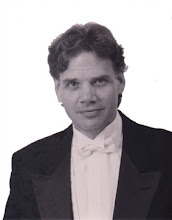I just finished reading Oliver Sacks' 2007 book, Musicophilia: Tales of Music and the Brain (New York: Knopf, 2007). It was one of those books that looked interesting when I bought it, but I forgot about it and left it on my shelf for three years unread. I'm glad I finally picked it up; there are so many ways in which this book can change our understanding of music's role in our lives. The subtitle is suggestive of the books' open-ended character; it is a loose collection of stories that reveal the connections between music and our functioning as human beings at all levels.
In one of these many stories, Sacks tells of a distinguished composer in his late sixties who developed a strange distortion in his hearing; he began to perceive the pitches in the upper octaves of the keyboard as being sharp by as much as a minor third (told in Chapter 10, "Pitch Imperfect: Cochlear Amusia"). He thought at first that his piano had been tuned wrong; when others checked the tuning, he was shocked to find that the problem was in his own perception of the pitch. The problem appeared to be caused by a distortion of the tiny inner hair cells that serve as auditory receptors. He had had some hearing loss in the higher frequencies, and the pitch range of his hearing loss roughly corresponded to the range of the distortion problem. I can't imagine how disturbing this would be to have your craft as a composer threatened in this way. He couldn't conduct his music because he was unsure if his perceptions of pitch were correct; he couldn't compose music that used the higher notes with any confidence. One overall theme that emerges in the book is a disturbing sense of the ways which our capabilities erode as we age. On the one hand, this story of the composer's hearing loss and distorted pitch perception reminds us of the fact that once our hearing is degraded, the physical structures are lost forever, and we can't regain them. Our hearing is a delicate thing, and we need to protect it. On the other hand, there is cause for hope in the flexibility of the mind, and in our ability to adapt and compensate for deficits we may have. The chapter has a remarkable happy ending, as we hear the composer relate how, through diligent, sustained effort, he was able to overcome this problem:
To my disbelief, . . . I started to notice, as I worked at the piano or synthesizer, that my amusia was ameliorating. Not consistently -- some days it was worse again, some days better -- some tonal areas better than others, then a different set of anomalies the next day, or even next moment! -- but generally improving. Sometimes I would check it first thing in the morning, and it was almost normal at first, but within a few seconds it would jump back to the aberrant norm. But then I would try to "correct" it with a effort of will and/or by playing the same note an octave or two lower to help bull it back in to accuracy, and I found I could do this more and more often. . . . This improvement seemed to start happening right after I was composing, producing, conducting, and trying to hear -- both in my inner and outer ears -- harmonically and texturally complex music with an extremely wide tonal range. Perhaps it was like doing extensive musico-neurological calisthenics, and I was gradually strengthening whatever mechanism of will exists in the old gray matter that can be focused on this problem. [1]
It seemed to be at least partly the composer's engagement with a rich sonic world, a world of "harmonically and texturally complex music with an extremely wide tonal range" that enabled him to compensate for his hearing loss, and to retune his ear. This story, and others like it, make me think more intentionally about how I am spending my time and expending my effort as a musician. What are my deficits and how can I overcome them? How we work, the sounds we seek out and surround ourselves with, our daily musical habits, all this certainly has an impact.
